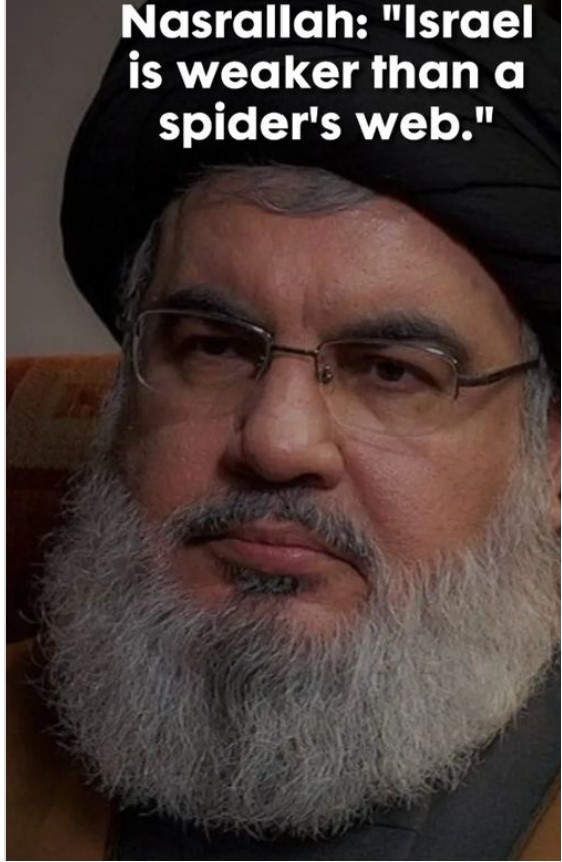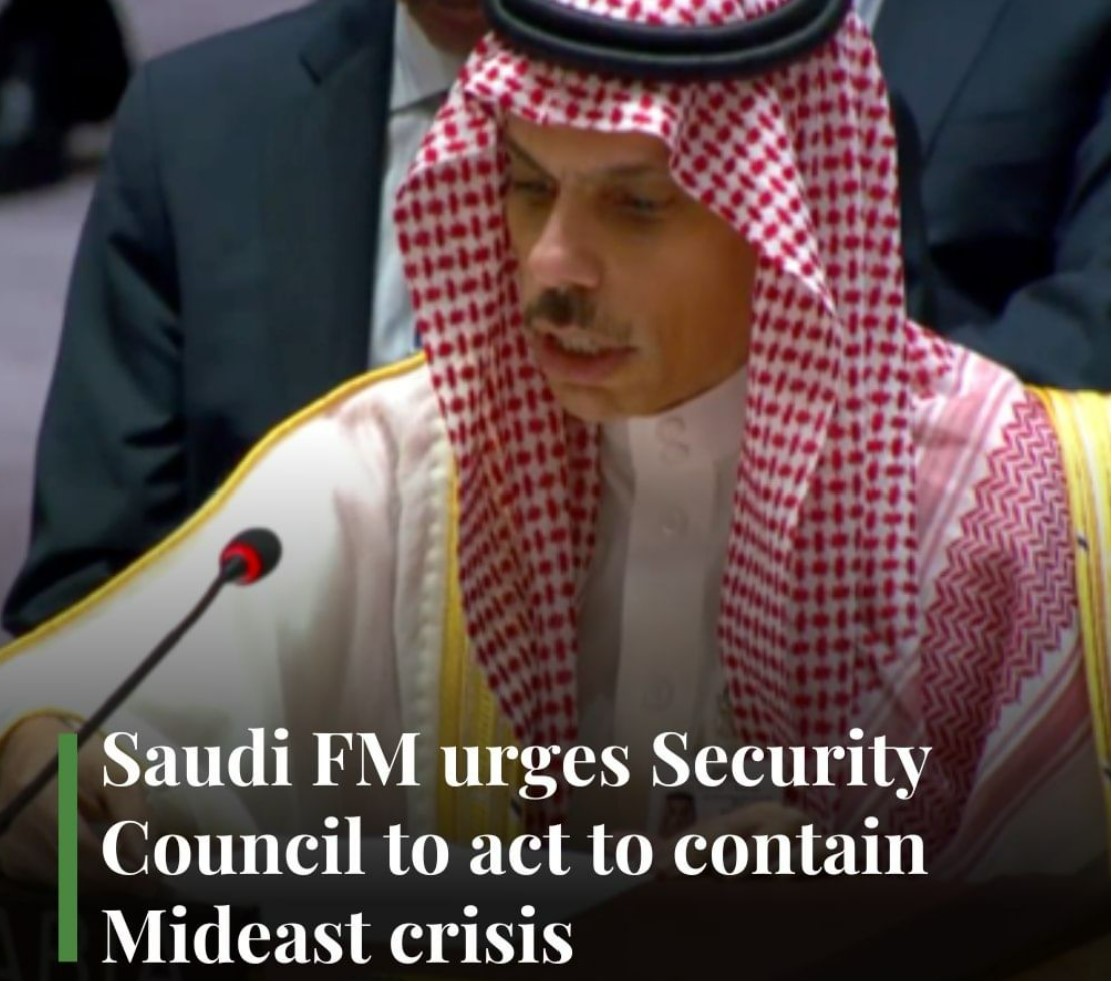Israel’s killing of Hezbollah leader is unlikely to shift the paradigm of Middle East politics
By James M.
Dorsey
Hi, if
you value independent, fact-based analysis, please consider becoming a paid
subscriber. Paid subscribers help ensure the survival of The Turbulent World’s unvarnished
journalism. You can contribute by clicking on
Substack on the subscription button at http://jamesmdorsey.substack.com and
choosing one of the subscription options.
To watch a video version of this story or listen to an audio podcast click here.
Thank you for your support and loyalty.
Israeli Prime Minister Binyamin Netanyahu is likely to discover that the killing of Hezbollah leader Hassan Nasrallah will not shift the paradigm of Middle East politics.
It’s a lesson Mr. Netanyahu should have drawn from decades of Israeli targeted assassinations.
Mr. Nasrallah
joined a long list of leaders of the Palestine Liberation
Organisation (PLO), Hamas, Hezbollah, Iran’s Islamic Revolutionary Guards
Corps, and an assortment of others, including Iranian nuclear scientists,
targeted by Israel. Mr. Nasrallah took
control of Hezbollah in 1992 after Israel killed his predecessor, Abbas Mousavi.
Abbas Mousavi. Credit: Navid-e-Shahid
Their deaths
demonstrated Israel’s surveillance, intelligence, and military superiority. The
killings produced short-term militant setbacks, domestic political successes
for Israeli leaders, and, at times, an enhanced Israeli sense of security but
failed to eliminate threats to the Jewish state’s national security.
The same is
true for the United States’ 2020 assassination of
General Qassem Soleimani,
the commander of the Revolutionary Guards’ Quds Force.
“Assassinating
leaders of ideological movements may bring tactical successes, but it rarely
delivers strategic victories,” said Middle East analyst Mohammad Yaghi.
“Assassinations
are an especially risky bet when it comes to highly ideological and potentially
suicidal terrorist groups; there is, after all, always a new guy
waiting in the wings,”
added Middle East commentator Dan Perry.
To be sure,
the decimation of the Islamic State in Syria and Iraq by an international
coalition deprived the group of its territorial base but did not stop it from
expanding in Africa and Central Asia.
Al Qaeda may be the exception that proves the rule.
Israel devastates Gaza. Credit: Euro-Med Human Rights
Monitor
Furthermore, Israel’s
year-long military campaign in Gaza, following 15 years of repeated bombings of the
Strip in response to
Palestinian missile attacks, has largely destroyed Hamas’ military
infrastructure at a horrendous cost to innocent Palestinians but failed to
diminish the group’s resolve or remove it from the political scene.
Moreover, the
Gaza war raises the spectre of Israel being sucked into a debilitating
guerrilla war, the beginnings of which have long been evident in the West Bank.
In Lebanon,
Israel has dealt Hezbollah severe body blows.
Mr.
Nasrallah’s assassination crowned two weeks of crippling Israeli strikes,
including the killing of scores and wounding of thousands of Hezbollah
operatives and disruption of the group’s communications when their pagers and walkie-talkies exploded, the taking out of many of the group’s top
military commanders,
and the bombing of its weapon arsenals.
In addition,
Israeli military operations, particularly in eastern Lebanon, likely disrupt
Iranian arms shipments to Hezbollah via Syria.
Credit: MissileThreat
That hasn’t
stopped Hezbollah from continuing to launch missiles at Israel, albeit with
less intensity than in the past year.
It is unclear
whether the reduced intensity is the result of the Israeli attacks or a
reflection of Hezbollah’s careful calibration to avoid hostilities from
spinning out of control.
Sources close
to Hezbollah said the group’s probable retaliation for Mr. Nasrallah’s killing
was not dependent on identifying his successor.
They
suggested the more immediate question was how to calibrate the group’s
retaliation in ways to meet the challenge without sparking a regional war. The
sources said Hezbollah was likely to retaliate sooner rather than later to
demonstrate that it may be down but was not out.
Hezbollah’s
retaliation could involve attacks on Israeli or Jewish institutions outside of
Israel. Israel killed Mr. Mousavi after Hezbollah bombed the Israeli embassy
and a Jewish community center in Buenos Aires.
Credit: Global Atlanta
,
This is not
to justify Israel’s war conduct in either Lebanon or Gaza.
Nevertheless,
if Hamas’ attack, despite its killing of hundreds of innocent civilians and
kidnapping of 250 others, was the product of almost six decades of Israeli
occupation and refusal to fully recognise Palestinian national rights,
Hezbollah’s initiation of hostilities along the Lebanese-Israeli border
constituted a unilateral act of aggression with grave consequences.
“The
Hezbollah leader gambled on October 8 to join the fighting after Hamas'
massacres in the south. In retrospect, it can be said that Nasrallah…gambled on his life – and
lost,” said Haaretz
journalist Amos Harel.
With his
gamble, Mr. Nasrallah may have miscalculated regarding Iran’s willingness to
back Hezbollah’s attacks on Israel.
Ayatollah Ali Khamenei and Hassan Nasralleh. Credit:
Ynetnews
Iran,
determined to avoid being sucked into an all-out regional war, has held back on
retaliating for Israel’s assassination in Tehran in July of Hamas leader Ismail
Haniyeh and carefully calibrated its response to Israel’s attack earlier this
year on the Iranian consulate in Damascus.
In the same
vein, Iranian operatives were among the casualties of Israel’s assault on
Hezbollah. Mojtaba Amani, Iran’s ambassador to Lebanon, lost an
eye when his pager
was one of the communication devices that exploded two weeks ago.
Iranian general Abbas Nilforoushan was
killed in last Friday’s bombing
that targeted Mr. Nasrallah. Mr Nilforoushan was appointed as head of the Quds
Force in Syria and Lebanon after his predecessor, Hassan
Mahdawi, died in the Damascus consulate attack.
In a further indication of Iranian
restraint, Iran’s Supreme Guide, Ayatollah Ali Khamenei, suggested
Hezbollah rather than Iran would respond to Mr. Nasrallah’s killing.
Similarly,
Mr. Nasrallah overestimated how badly Hamas had wounded Israel with its October
7 attack. In July, Mr. Nasrallah asserted that Israel was on the verge
of its demise “Israel
is weaker than a spider web,” Mr. Nasrallah said.
Source: Instagram
Speaking a
month later on the 18th anniversary of the 2006 war, Mr. Nasrallah
claimed that “the Israelis now are having existential
fears. They fear the
entity’s existence and continuation.”
Notwithstanding
Mr. Nasrallah’s miscalculations, the history of Israeli targeted assassinations
and policy rooted in a belief that force rather than equitable solutions to
political problems will guarantee the Jewish state’s security is at the core of
Israel’s response to Hezbollah after a year of both sides waging a calibrated
war of attrition.
Mr. Nasrallah
leaves big shoes to fill by his successor, with deputy leader Naim Qassem, a
co-founder of Hezbollah, and executive council head Hashem Safieddine, the late
Hezbollah leader’s cousin, in the running. Mr. Safieddine is related by
marriage to Mr. Soleimani, the assassinated Quds Force commander.
Naim Qassim (left), Hassan Nasrallah (center), and Hashem
Safieddine (right). Credit: SBISALI
The sources
close to Hezbollah suggested the group may take its time in announcing a new
leader for security reasons, given Israel’s demonstrated intelligence
capabilities.
A charismatic
but polarizing figure viewed by many Lebanese Shiites as a spiritual guide,
father figure, protector, and provider, Mr. Nasrallah transformed Hezbollah
with Iranian assistance into the world’s most formidable, battle-hardened
non-state militia and Lebanon’s most powerful political group with a mass
following.
A cleric who
studied in Iranian seminaries, Mr. Nasrallah was Hezbollah’s military
commander, political leader, and religious guide all rolled into one.
His influence
reached beyond Lebanon.
Long
designated by Saudi Arabia and the United Arab Emirates, alongside the United
States and the European Union, as a terrorist organization, Hezbollah returned
to the Arab fold in June as a result of the past year’s war of attrition with
Israel in what amounted to a restoration of the group’s mantle as one of the
armed Arab groups and institutions willing and able to confront Israel.
Source: X
The Arab
League announced in June that it no longer designated Hezbollah as a
terrorist organization.
Taking the lead, Iraq quietly allowed the group to open an office in Baghdad.
The League
designated Hezbollah in 2016 because of the group’s armed support for President
Bashar al-Assad in the Syrian civil war and its alliance with pro-Iranian
sectarian groups in Iraq and Yemen.
This week, Iraq
announced three days of mourning in response to Mr. Nasrallah’s killing.
Prime
Minister Mohammed Shia al-Sudani charged that the assassination showed Israel’s
“reckless desire to expand the conflict at the expense of all the peoples of
the region and their security and stability.”
Despite the
Arab League’s gesture, Saudi and Emirati responses were muted.
Source: Instagram
Rather than
condemn the assassination, Saudi foreign minister Faisal bin Farhan Al Saud
warned that "this escalation will have... negative repercussions for the
entire region.”
Mr. Bin
Farhan called “upon all parties to show wisdom and to show restraint in order to avoid a true war from
breaking out in the region."
At the same
time, Mr. Nasrallah’s killing brought to the fore longstanding Arab distrust of
Iran.
“Iran’s
manipulation of sectarian divides…has further fragmented the Arab world, making
it easier for external powers to exploit those divisions. By backing militias
and non-state actors such as Hezbollah,
Iran has sought to undermine Arab sovereignty and create chaos, all the while claiming to champion the
Palestinian cause,” charged journalist Hani Hazaimeh, writing in Saudi Arabia’s
English-language Arab News.
“The time has
come to acknowledge that Iran is not the solution to the Arab world’s
challenges — it is part of the problem,” Mr. Hazaimeh said.
Dr. James M. Dorsey is an Adjunct
Senior Fellow at Nanyang Technological University’s S. Rajaratnam School of
International Studies, and the author of the syndicated column and podcast, The Turbulent World with James M. Dorsey.













Comments
Post a Comment